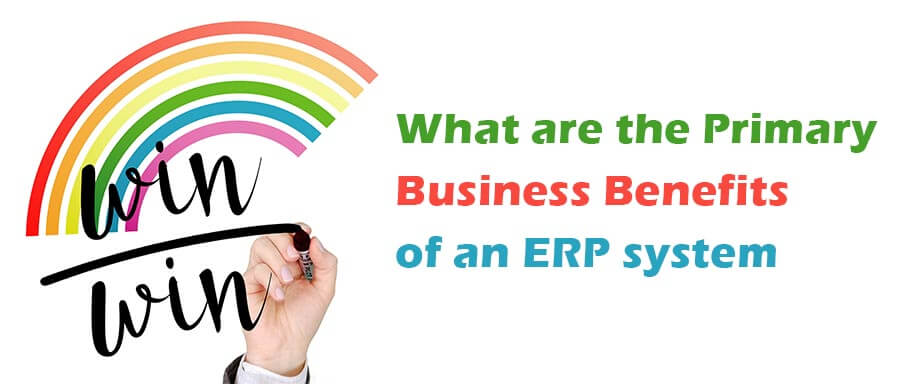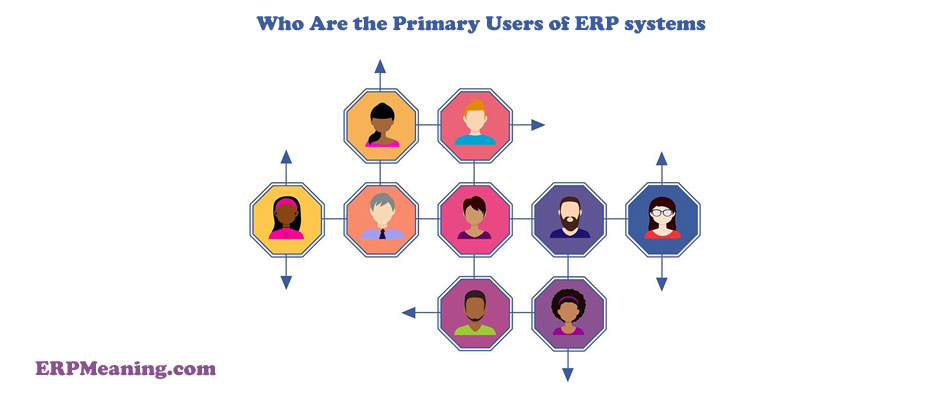
In today’s era, Enterprise Resource Planning has provided countless advantages. It will be really surprising for anyone to know how beneficial these ERP systems are. Nowadays, Enterprise Resource Planning (ERP) software is used by different types of organisations in order to get more benefits in their business. The primary benefit of an ERP system is mainly known for the providing smoothness in the work. The ERP has an impact on the processes related to coordination, productivity, flexibility and operational cost etc.
Let’s go in detail to know about the functions of Enterprise Resource Planning (ERP) system
Primary Business Benefits of an ERP system?
Enterprise Resource Planning software is available to manage the data within a business organization of industries . It can be defined as a group of sophisticated and strategic business planning management technologies. To manage the information and processes in an effective manner is really difficult for any company and organization. They all have to face the same difficulty in order to manage the several processes. In these situations, ERP systems come as a boon to solve the issues related to various business organizations and companies.
ERP systems represent the combination of numerous aspects of an organization and comprehensive knowledge system as a single one. There are no limitations to operate the system, it can be accessed by all the members presented in the organization. ERP software is beneficial in a variety of organization such as health care, businesses, charitable organization, construction and Hospitality etc.
How Can it be Decided that a Business needs to Upgrade their ERP system?
Organizations related to different types of industries use Enterprise Resource Planning (ERP) software that provides a lot of benefits to them. There are few key trials that indicates when any business required to update or implementation in their ERP system, which are following:
- Time period of growth: The status of the organization that it is growing, has grown or is just planning to grow.
- Problems in operations: if any issues occurred in operations then organizations needs to update the software to make the process smooth.
- Expired legacy systems: If the present system of any organization, is old and not to be updated or unable to serve the business and users anymore.
- Advanced strategic roadmap: The organizations who are looking for latest technology road map to improve their business, then implement in Enterprise Resource Planning system is must
Primary Business Advantages of ERP system for the various industries
Coordination between Departments
The ERP system is helpful for businesses to transfer the data by using a single source across all departments of any organization in a rapid manner. The system has the ability to provide the real time information which streamlines processes and develops a single record system across the several branches.
By using ERP, businesses are able to take their critical decisions on exact time. The risk of the wastage of resources has also been decreased with the help of ERP. It provides the exact information about hurdles that can create a barrier in the production. Due to this, administrators are able to recognize any issues on time and they can take more powerful decisions with a visible image of the complete organization.
Increase Productivity with More Flexibility
The ERP system is responsible for collaborating the team members more quickly, which will result in more efficiency and productivity for SMEs. The ERP system can store all primary data including vendor list, Bill of things, operational processes and many more. The speciality of the ERP system is that it can be accessed by all prominent staff members.
It provided uniformity and coordination in all work processes related to any organisation. On the other hand, by saving time, the EPR system also increases business productivity in several ways.
Thus, the specialized ERP system offers SMEs with the flexibility to handle workflow processes and to create important modifications to data management. It also helps to remain stable in the competitive edge in any business task.
Transparency in Tracking and Organization
An ERP system having one more advantage is that it also can detect the progress of services and products in the pipeline. Besides this, ERP systems have a wide range of services like raw material management, order monitoring, inventory tracking and revenue tracking. For instance, Amazon and FedEx use this high technology system to transfer their products on exact times with low expenses.
Better Customer Service
ERP system provides an impressive manner in customer services. It offers effective services in shipping and delivery systems that are beneficial for customers not only in the front-end but also in back-end interactions.
To maintain the supply chain with the proper flow and without any issues, an ERP system is effective. Thus, by using ERP, a supplier can easily supply the materials according to demand.
By improving the order accuracy and faster response times, you can establish a better relationship with your customers.
Benefits of cloud Safety
ERP platforms are engaging in high security and top level of data protection with a single input system. The chances of source conflicts might be higher while the data from various systems get combined. But the ERP software plays a vital role to maintain the company’s data with accuracy, consistency, and security in a single input system.
However, an ERP platform stands for any organization as a central hub, but it can not deliver the same level of access to all staff members.
Although, managers have the power to improve the security system from the advanced user permission settings. With these settings, employees are able to access the information related to their jobs.
Benefits of an ERP in Distribution Business
Efficiency
ERP provides a single central platform for all distribution processes. The necessary data of the whole bank can be accessed in a simple way. To prepare reports and fill the data, an ERP system has already been functioning.
By seeing the efficient KPIs that are visible on the dashboard, management can handle the situations quickly. The requirements for repetitive staff activities have also been minimized by ERP.
Effective Collaboration
ERP increases the possibility of collaboration effectively and efficiently among a large number of departments. Moreover, an ERP system also improves collaboration with remote personnel. With just simple clicks, both offshore and nearshore workforce will be available to your command to offer a valuable workflow.
Benefits of an ERP in Operational Cost Management
The internal server breakdown is a common issue for organizations. A Cloud-based ERP is helpful to remove the disturbances or if in any case, issues occur then ERP is able to resolve it. It helps to improve inventory planning and to make better procurement management.
Advantages of ERP in Manufacturing Industries
Helpful in Automation
Any software can be used by the manufacturers to maintain the automated work orders including the date and time of execution, information about customers, order details, options related to finance, amount of product, details of staff and much more.
Perfect Strategy And Decision
Decision-making ability is the key feature for the success of any manufacturing industry. ERP solution is beneficial for the detailed insights and visibility for all departments of an organization and business process, providing to make any organization more educated, accurate, and timely business options.
Advantages of ERP in Supply Chain Management
- An ERP offers a better opportunity to manage the acquisition and supply of goods, services and other resources to maintain the supply chain with regular work flow.
- ERP system is responsible to deliver the things on exact time and it also provides the complete information about shipment and delivery details to the customers with more efficiency.
- To maintain the supply chain with more accuracy, an ERP can reduce the bottlenecks between Internal operations and external suppliers.
Who Are the Primary Users of ERP platform?
The Enterprise Resource Planning (ERP) has multiple functions which can be useful in numerous fields including from accounting to manufacturing. The some the primary users of ERP systems are mentioned below:
- Distribution Business
- Banks
- Large Businesses
- Education Departments
- Government sectors
- Startups
- Manufacturing
- Supply Chain Management Departments
- Health Care
- Professional services
- Industrial services
- Service business
Conclusion
According to recent research, ERP projects are more successful in comparison to the past. The ERP software software which are available on the market these days, are more convenient to implement. It is really a crucial thing to improve the business benefits.
If we’re talking about the primary business benefits of an ERP system, it can be more beneficial to making business, better Customer services and delivery tracking handy with transparency.
Are you still wondering about the ERP system, then you have to make a full stop on your overthinking. If your business is not implemented with an ERP system then it’s the time to get up and make your business smarter. There is nothing difficult in it, you just have to select a software that will be suitable for your business and budget. After that, just implement it and take the advantages of Enterprise Resource Planning(ERP) and feel the difference in the growth of your business.


Pingback: Key ERP Modules - Types, Features & Functions | List of ERP Modules